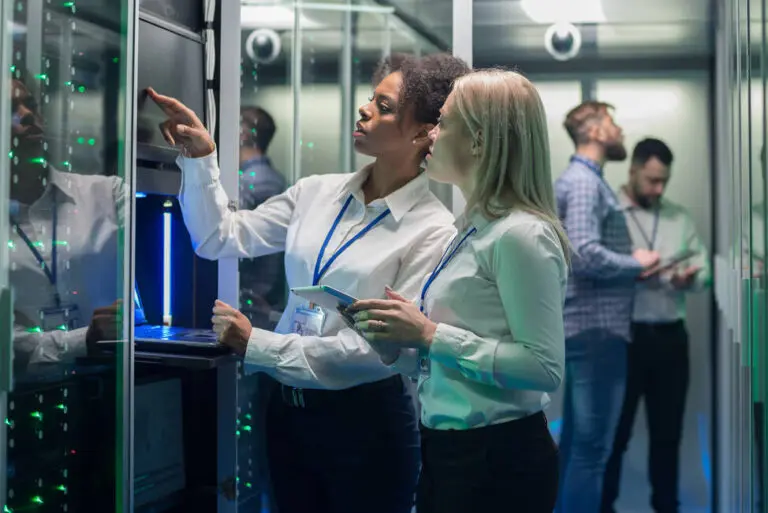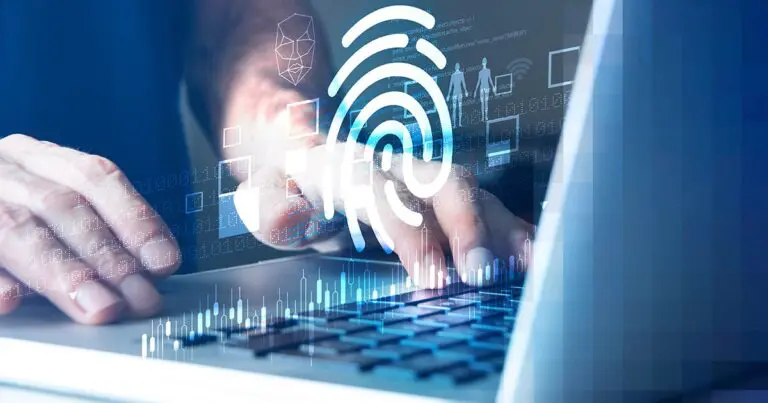How New Technology is Transforming the Food and Beverage Industry

As technology continues to advance, the food and beverage industry is capitalizing on its new capabilities to transform the way in which it operates.
Digital transformation has become an integral part of this sector, from sourcing ingredients to marketing products, leading to unprecedented opportunities for growth and innovation.
This is why it’s becoming more important than ever to understand how new technology is revolutionizing the food and beverage industry and unlocking possibilities for success.
What is digital transformation in the food and beverage industry?
Digital transformation in the food and beverage industry involves the introduction of advanced technologies such as artificial intelligence, machine learning, cloud computing, and data analytics.
This technology is used to streamline internal processes, automate tasks, and analyze data in order to gain insights into consumer behavior and preferences.
With this information, companies can make informed decisions that lead to more efficient operations, better customer service, and the launch of new products.
6 examples of new technology being used in the food and beverage industry
There are countless examples of how new technology is being used in the food and beverage industry including automation and robotics, blockchain technology, and augmented reality (AR).
- Automation and Robotics
- Artificial Intelligence (AI)
- Internet of Things (IoT)
- Blockchain technology
- Augmented Reality (AR)
- Mobile Apps and Online Ordering
1. Automation and Robotics in food and beverages
These technologies are becoming increasingly popular in order to streamline processes, reduce costs and maximize efficiency.
Automated systems can be used for packaging, scanning products, transporting goods, and even preparing meals.
Additionally, robots are being deployed to automate tedious tasks such as ingredient sorting and inspection of food products.
2. Artificial Intelligence (AI) in food and beverages
AI is also revolutionizing the way companies interact with customers.
AI-powered chatbots can be used to answer customer queries quickly and accurately, allowing for better customer service and increased engagement.
3. Internet of Things (IoT) in food and beverages
IoT technology is also being used in the food and beverage industry to provide real-time monitoring of production processes.
This allows for more efficient operations as well as improved traceability, which can help companies comply with food safety regulations.
4. Blockchain technology in food and beverages
Blockchain is also being used in food and beverages to track the origin of ingredients, ensuring that consumers have access to safe and healthy products.
By monitoring the entire supply chain, from farm to store shelves, blockchain technology can provide a secure audit trail of information about each ingredient.
This is beneficial for consumers who may have dietary restrictions or allergies and need to be certain that their food is safe and untampered with.
5. Augmented Reality (AR) in food and beverages
AR has become popular in the food and beverage industry as a way to provide customers with more engaging experiences.
For example, AR can be used to provide interactive product demonstrations or virtual tours of production facilities.
This technology also enables companies to create immersive experiences for customers, allowing them to interact with products in an engaging and entertaining way.
6. Mobile Apps and Online Ordering in food and beverages
Mobile apps and online ordering have become essential tools for success in the food and beverage industry.
These technologies enable customers to place orders quickly and conveniently, making it easier for companies to meet their needs.
Additionally, mobile apps can be used to provide targeted promotions and discounts in order to drive sales.
Benefits of digital transformation in the food and beverage industry
Improved efficiency, increased customer engagement, and enhanced traceability are three of the many benefits of digital transformation in the food and beverage industry.
Improved efficiency
Digital transformation can help food and beverage companies streamline their operations, allowing them to save time and money.
Automation technologies allow for faster production times and more accurate processes, leading to a better overall product.
Increased customer engagement
The use of digital technologies such as AI-powered chatbots, mobile apps, and online ordering enables companies to provide more personalized experiences to their customers.
This leads to improved customer loyalty and increased sales.
Enhanced traceability
The use of blockchain technology in the food and beverage industry allows for enhanced traceability of ingredients, allowing companies to comply with food safety regulations and ensure that their products are safe for consumption.
Digital transformation in the food and beverage industry
Overall, digital transformation in the food and beverage industry can lead to increased efficiency, better customer service, and the launch of new products.
By leveraging new technologies such as automation, AI, blockchain, AR and mobile apps, companies can remain competitive in this rapidly evolving sector.
Looking To Gain Clarity On Your Digital Transformation Needs?
Download Your Tactical Guide to Digital Transformation now and learn everything you need to know in 10 minutes or less!
More articles about job searching and industry trends:
- 10 Signs It’s Time to Ask For Help With Hiring
- Benefits of Digital Transformation in Healthcare with Examples
- HR Technology in Hiring: Streamlining Your Recruitment & Onboarding
- 4 Simple Resume Tips to Help You Hire Job Candidates Faster
- What Does a Recruiter Do & Who Do They Work For?
- Will ChatGPT Replace Your Job?
- How to Spot & Avoid Fake Job Posting Scams
- What to Do If You Find Out Your Coworker Makes More Money Than You
- Hidden Job Market: What Is It & How to Find Jobs On It



